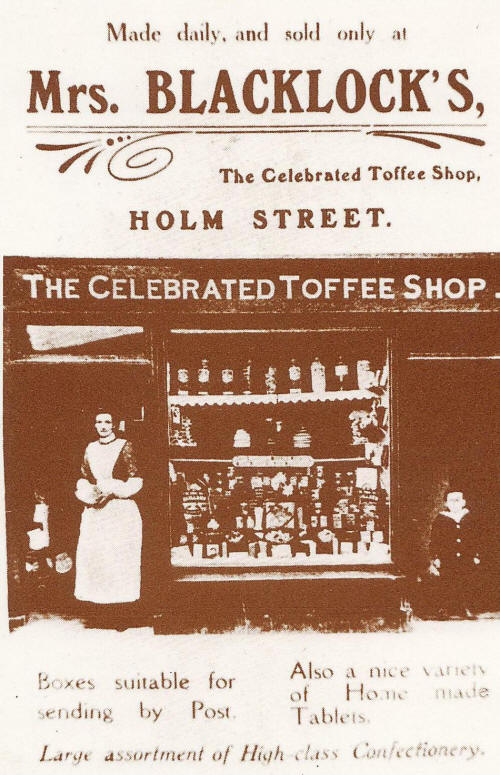|
WE consider preliminary and
explanatory observations regarding the origin and presumed utility of the
present work unnecessary, therefore the few pages flourishing under the name
of a "preface" may be regarded as a simple manifestation of gratitude to
those parties who have in any way assisted me in collating material for the
present work. Parties who particularly claim our thanks are, Mr. John Muir,
Glasgow, who facilitated our researched by ready access to the valuable
collection of works in the Faculty Library; Mr. Charles Stewart, Hillside,
by Lockerbie, and Mr. 'Wilson, Moffat, the former of whom has long held the
reputation of being an indisputable authority on historical subjects
specially bearing on Dumfriesshire, and who himself has published an
admirable little work, which has already received the share of public
approbation which it merits. To Mr. James Johnstone, Edinburgh (whose advice
was ever of the most kind and encouraging character), our thanks are
especially due for the perusal of. many prints and manuscripts relating to
the Burgh's rights and boundaries. We also take this opportunity of thanking
Messrs. Blackie & Sons, Publishers, who, with their customary kindness and
courtesy, readily granted permission to insert in the Appendix the analysis
of Moffat's sulphurous spring, effected in 1854 by the celebrated chemist,
Dr. Macadam, and subsequently published under their auspices. Our thanks are
due also to the Rev. Messrs. J. G. M'Vicar, D.D., LLD., Robert Kinnear, and
William Hutton, for supplying the statistics of their respective churches;
and the former of whom has in many ways contributed much to the value of
these pages. Having been led to believe that a sketch of Moffat at or about
1770 was still extant, we exerted ourselves to procure it, through the
medium of the public prints, but our exertions, we regret to announce,
proved unavailing.
We commend
this crude sketch of Moffat, as it was and is, to the lenient consideration
of parties interested in the subjects bidding it, in the words of Southey,
'farewell.'
"Go, little book,
from forth my solitude,
I cast thee on the waters, go thy ways;
And
if, as I believe, thy vein be good,
The world shall find thee after many
days."
W. R. T.
Lockhart
House, Dennistoun.
Glasgow. July 1871
Contents
-
Chapter I
Sketch of the Parish—Its Rivers,
Population, and Extent.—The origin of the Town —Its Trade—Supposed
former site of the Town.
-
Chapter II
Its Physical aspect—Moffat at a
remote period denominated a "Toune"—The Inhabitants and their
Customs.—Early Charters.—Ecelesiastical Notes—Moffat Church prior to the
Reformation—The Vicarlands.
-
Chapter IlI
Edward Baliol—The "Three Stan'in'
Stanes."The Gallowhill
-
Chapter IV
The Frenches of Frenchland.—The
Whitefurdes—Discovery of Moffat Well by Miss Whitefurde. —Dr Robert
Johnstone—His Grammar School.
-
Chapter V
The Johnstones of
Annandale-Viewed as Freebooters.-The "Devil's Beef Tub."-The present
Representative of the Family.
-
Chapter VI
Sketch of the History
of the Covenant.—Claverhouse in Annandale—His Letters from Moffat.
-William Moffat —Dobb's Linn.
-
Chapter VII
The Sulphurous Spring—Various Analysts.—Visitors.
-
Chapter VIII
Burghs of Barony
and Regality.—Dr Whitefurde. —Charter of 1662, and the Ratification of
1669.—Mr Johnstone's Charter of 1831—The Commonlands. -
Market - Place and Meal House.—Magistrates.
-
Chapter IX
Moffat in 1704.—Hartfell
Spa.—Moffat House.—The Town in 1770.—Moffat as a Market Town.
—Trade.—Ecclesiastical Notes, continued.
-
Chapter X
Opening of
the Caledonian Railway— Good derived from it.
-
Chapter XI
Eminent
Men connected with the Town and Parish.
-
Chapter XlI
Summary of
Events from 1848 to 1871.
-
Appendix
Some old pictures of
Moffat from Sean at the Moffat Toffee Shop
.JPG)
.JPG)
.JPG)
.JPG)
_small.jpg)
_small.jpg)
.JPG)
.JPG)
.jpg)
_small.jpg)

|

